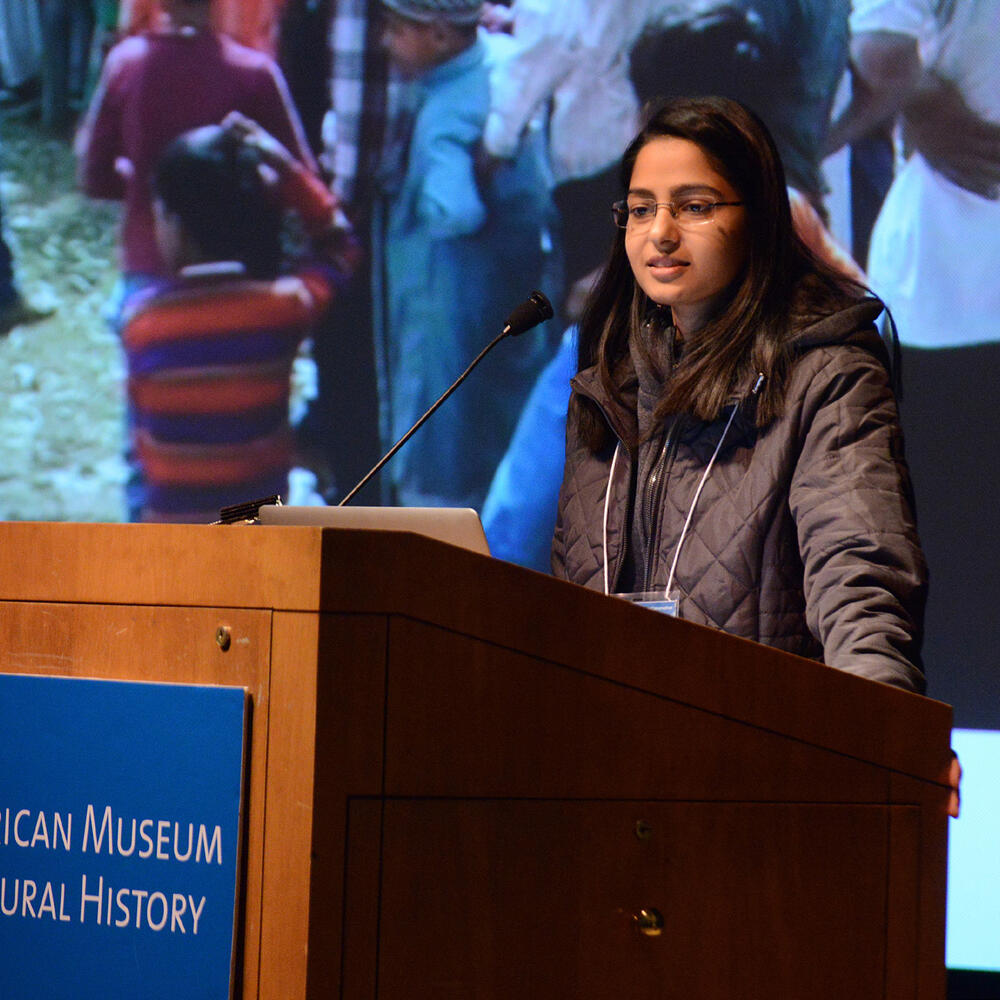Student Conference on Conservation Science-New York
As a part of the only international series of conservation conferences featuring students and early-career professionals, SCCS-NY provides opportunities for emerging scientists to professionally network, gain experience, and present and get feedback on their work. Interactions with peers as well as leaders in science, policy, and management will encourage collaborations, inspire further research, and create lasting professional connections.
“This is the only conference where I’ve seen mentorship being provided to students, and this is absolutely amazing. The feedback is very helpful and a chance to talk to mentors during lunches and during breaks is extremely valuable.” - Ph.D. Student

The 2024 Conference
Join us for the 15th annual SCCS-NY! This year's hybrid conference will have both virtual and in-person programming. We will host three days of conference events and activities at the American Museum of Natural History in NYC, and virtual attendance will be supported by live-watch parties of presentations, interactive Q&A sessions, and virtual workshops and mentoring sessions. Visit the Application & Registration page to learn more about how to attend.
Agenda-at-a-Glance
- 10:00 AM: on-site participant check-in
- 10:00 AM - 12:00 PM: virtual workshops
- 11:00 AM - 12:00 PM: Museum collection tours
- 1:00 - 3:00 PM: on-site workshop session 1
- 3:30 - 5:30 PM: on-site workshop session 2
- 5:30 PM: welcome reception
- 6:30 PM: AMNH SciCafé
- 8:00 PM: adjourn
- 9:00 AM: on-site check-in
- 9:30 AM: opening plenary
- 10:30 AM: talk sessions
- 1:00 PM: Mentor cafés / lunch
- 2:45 PM: speed talk sessions
- 5:00 PM: poster session & pizza party
- 7:00 PM: adjourn
- 9:00 AM: on-site check-in
- 9:30 AM: speed talk sessions
- 11:00 AM: talk sessions
- 1:15 PM: mentor cafés / lunch
- 2:45 PM: speed talk sessions
- 4:15 PM: careers panel discussion
- 5:30 PM: awards ceremony & closing reception
- 6:30 PM: adjourn
At SCCS-NY, you'll be able to:
- Present your work in talk, speed talk, or poster presentation format
- Receive personalized feedback from mentors
- Network with conservation professionals and peers
- Build your skills at workshops
What can you expect at SCCS-NY?
- Plenaries by leading conservation practitioners
- In-person and virtual mentoring sessions
- In-person and virtual workshops
- Go behind the scenes at the Museum and explore its collections
- Awards for best presentations
- Special evening programming & receptions at the Museum
Who Should Attend SCCS-NY?
If you are an undergraduate or graduate student, post-doctoral fellow, or early-career professional (from anywhere in the world!) pursuing or considering the field of conservation, we encourage you to attend! Whatever your focus—biology, social sciences, medicine, economics, architecture, law—if it has relevance to conservation, we want to include your perspective.
If you are a conservation professional or faculty member, consider attending and contributing to SCCS-NY as a mentor! Providing mentoring for our student and early-career professional attendees is central to the mission of SCCS-NY. Mentors can participate by reviewing abstracts, providing feedback on presentations, and/or hosting a mentoring session or workshop. Opportunities for asynchronous, virtual, and in-person mentoring are available! Please contact the conference organizers at [email protected] for more details on how to get involved.
How to Attend
The call for applications to present a talk, speed talk, poster has closed, but attendance-only registration will remain open until October 1, 2024. Visit the Application & Registration page to learn more!
The registration fee for the conference is $100 USD, which includes access to all presentations and events during the conference dates, as well as any materials and content available online after the conference.
Share, Like, & Follow:
Follow us on Twitter, Facebook, and LinkedIn for updates!
SCCS Sister Conferences
SCCS-New York is a sister conference to the highly successful SCCS-Cambridge. Begun in 2000, the conference series now includes SCCS-NY, SCCS-Bengaluru, SCCS-Australia, SCCS-Beijing, and SCCS-Hungary.
The Center for Biodiversity and Conservation thanks our SCCS-NY partner:
Major funding for the 2024 Student Conference on Conservation Science has been provided by Marshall M. Weinberg.